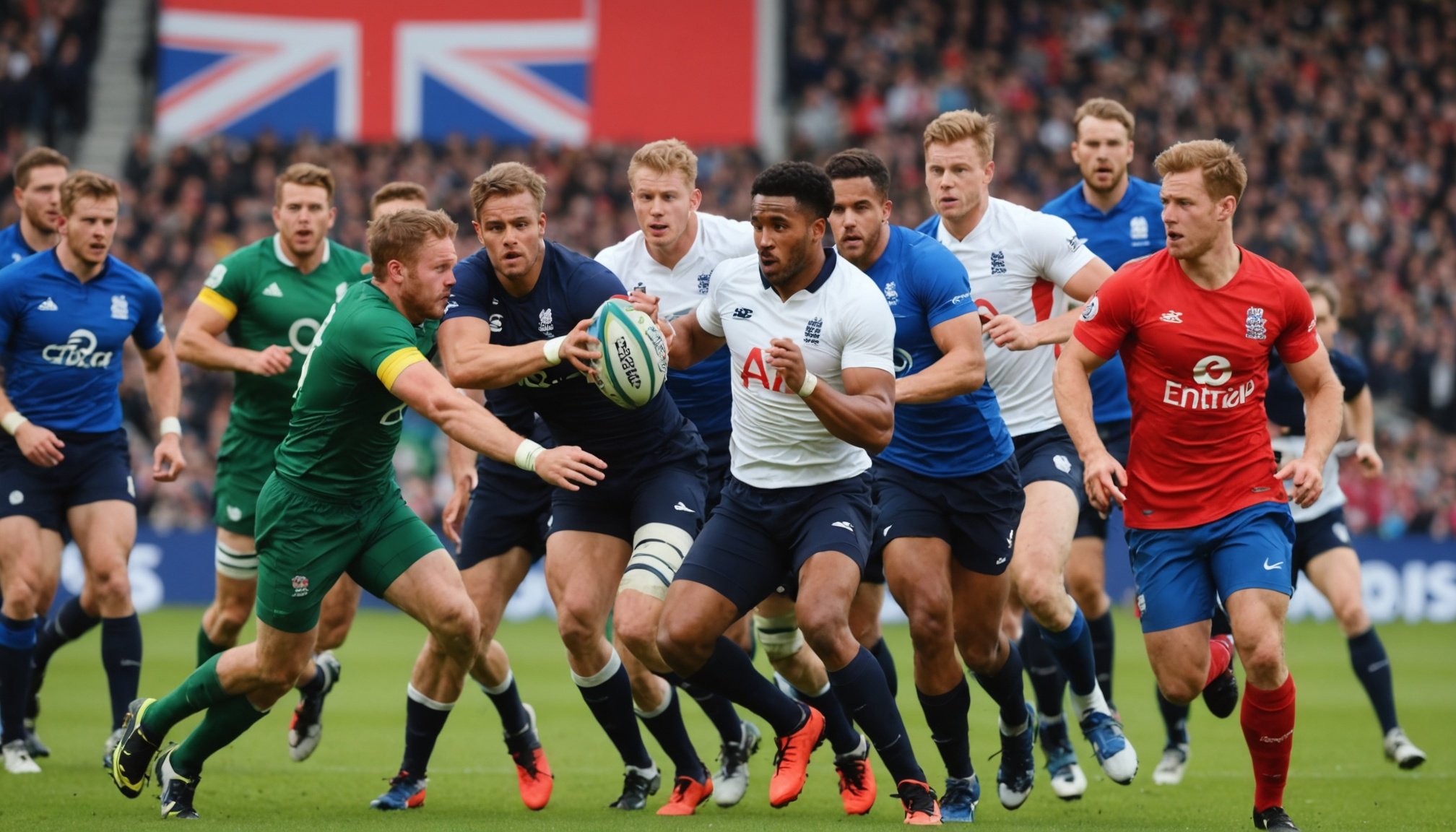Immediate Impacts of Emerging Regulations on British Sports
Recent shifts in British sports regulations have swiftly altered the landscape of sports governance and operations across the United Kingdom. These changes primarily focus on enhancing transparency, compliance, and athlete welfare, imposing stricter controls on clubs and governing bodies. For instance, new mandates require comprehensive reporting on financial activities and stricter oversight of talent development programs.
The direct effects on sports governance include increased administrative duties for sports organizations. Governing bodies must now implement robust compliance frameworks, which can divert resources but ultimately aim to foster fair play and integrity. For clubs, these industry changes translate to recalibrating operational strategies, particularly in managing youth programs and contractual obligations to athletes.
Also to discover : How Can UK Sports Fans Influence the Future of Their Favourite Teams?
Initial responses from the sector reveal a mixture of adaptation and concern. While many clubs acknowledge the potential for long-term benefits, there is unease over immediate resource allocation, especially among smaller organizations. Athletes have welcomed provisions enhancing their rights and protections, emphasizing the positive directional impact of these regulations on their professional and personal well-being. These developments mark a significant turning point in the evolution of British sports governance.
Key Regulatory Changes and Their Applications
Recent sports legislation UK updates have introduced significant shifts in how competitions are organised and regulated. Several key policies now require sports clubs and governing bodies to adhere strictly to compliance standards aimed at ensuring fairness and transparency. For instance, new legal requirements mandate detailed reporting and audit trails for funding and player transfers, addressing long-standing concerns about financial mismanagement and doping.
Also to see : How Are UK Sports Teams Preparing for International Competitions?
Changes to competition formats are also central to the revamped regulatory landscape. Many sports have adjusted their tournament structures to promote inclusivity and competitive balance. This involves modifying qualification criteria, match schedules, and playoff configurations. Such reforms encourage wider participation while retaining the integrity and excitement of traditional formats.
Compliance measures for clubs and organisations have become more robust. Compliance officers must now monitor ongoing adherence to updated health and safety laws, anti-discrimination policies, and data protection rules. Failure to meet these standards risks sanctions ranging from fines to suspension from competitions. Embracing these changes not only prevents penalties but fosters a healthier, more equitable sports environment in line with the latest sports legislation UK.
Perspectives from Stakeholders
Insights from industry experts and legal advisors reveal that evolving regulations have significantly influenced athlete conduct. These professionals emphasize the growing importance of transparent enforcement of ethical standards to protect both sports integrity and athlete rights. Their expertise underscores the necessity for clubs to adapt swiftly to new compliance requirements.
Feedback from sports clubs—officials, managers, and athletes alike—highlights a marked shift in internal policies. Many clubs have implemented stricter codes of conduct, reflecting a proactive stance toward maintaining professionalism. Managers assert that fostering clear behavioral expectations promotes team cohesion and public trust.
Athlete conduct itself is undergoing transformation. Increasingly, athletes are held accountable not just on the field but in their public and private lives. Clubs support educational programs that encourage athletes to uphold standards aligned with evolving societal values. This collaborative approach between clubs and athletes aims to set consistent examples that resonate across the sport.
Overall, the perspectives from stakeholders illustrate a dynamic landscape where regulatory guidance and practical experience converge to shape more robust athlete and club conduct standards.
Case Studies of Affected Sports and Examples
Examining affected sports like football and rugby reveals how regulatory changes create ripple effects across different levels of play. In football, adjustments to concussion protocols have driven clubs at all tiers to adopt stricter health checks and substitute rules. This shift reflects a balancing act between player safety and game flow, showcasing how regulatory case studies can guide policy adaptation.
Rugby offers a further example, with governing bodies negotiating rule alterations to reduce injuries without compromising the sport’s physicality. These discussions have led to updated tackling laws and mandatory head injury assessments, redefining both training and competitive frameworks. Such real-world examples underscore the sport’s proactive stance while highlighting challenges faced by grassroots organizations striving to implement new standards alongside professional counterparts.
Moreover, emerging sports are keenly observing these precedents. They use established case studies to preemptively design regulations that prioritize athlete welfare, helping to avoid later conflicts. This demonstrates the crucial role regulatory case studies play not just in managing immediate concerns but in shaping the long-term evolution of diverse sports even outside traditional domains.
Anticipated Benefits and Challenges for the Industry
Regulatory changes bring both benefits and challenges for the sector. Among the primary advantages are improvements in governance, which foster transparency and accountability. Enhanced safety measures protect stakeholders and increase trust across the board. Moreover, fairness in competition is better maintained when regulations curb unfair practices, supporting a healthier market dynamic.
However, organisations face several regulatory challenges during these transitions. Adjusting operational processes to comply with new policies often requires significant investment in staff training and compliance systems. Smaller entities, in particular, may struggle with the resources needed to adapt quickly, potentially causing temporary disruptions in performance or financial strain.
Over the long term, such regulations can influence competitive balance by levelling the playing field and preventing dominance by a few powerful players. This redistribution can also affect club finances, encouraging prudent management and sustainable growth models. Though adaptation is complex, the overall outlook benefits the industry’s stability and integrity.
Understanding and anticipating these factors help stakeholders navigate the evolving environment effectively, turning regulatory challenges into opportunities for improvement.
Future Predictions and Evolving Trends
British sports regulation is currently at a pivotal point, with the future of British sports regulation poised for further significant changes. Ongoing reforms suggest a shift toward greater transparency and accountability. These reforms aim to enhance fairness and safety while balancing commercial interests and athlete welfare, shaping the regulatory environment substantially.
Clubs, athletes, and governing bodies are increasingly proactive in preparing for these changes. Many adopt compliance strategies focused on adapting to emerging rules, ensuring ethical conduct, and engaging more transparently with fans and stakeholders. This preparedness reflects a shared commitment to evolving standards and maintaining competitive integrity.
Emerging trends include a stronger emphasis on technology-driven governance, such as using data analytics for monitoring compliance and anti-doping measures. There is also a notable move toward integrating mental health provisions within regulation frameworks, reflecting a holistic approach to athlete care. Additionally, the digital transformation of sports media necessitates new rules on rights and content regulation.
Overall, this dynamic landscape signals that the trends shaping the British sports regulatory framework will continue evolving, requiring constant vigilance and adaptation by all involved parties.



